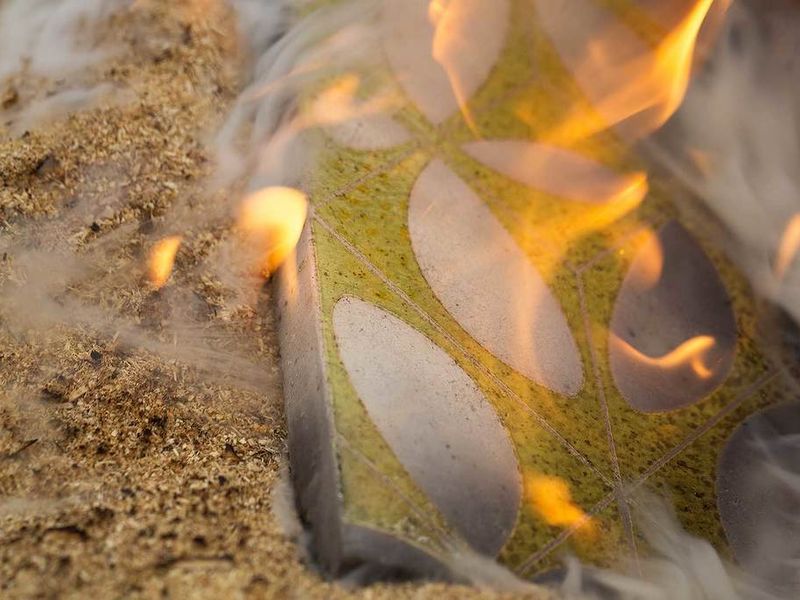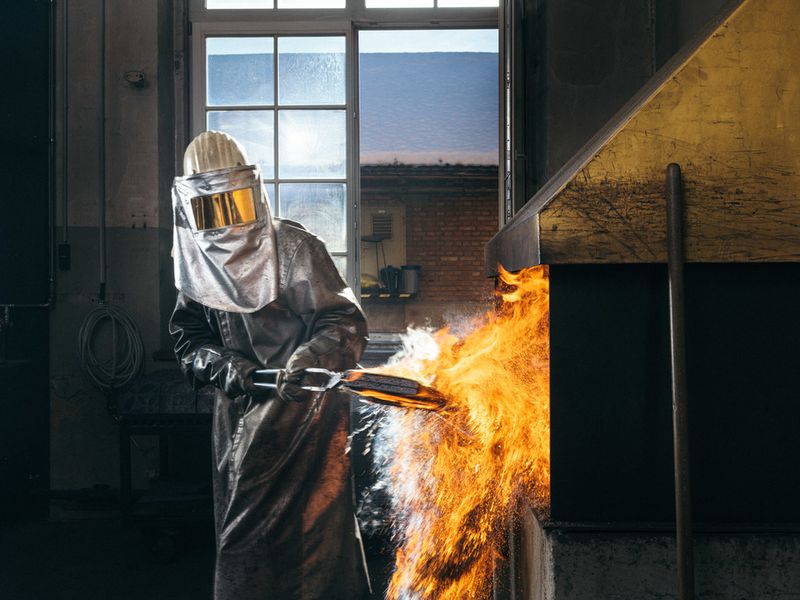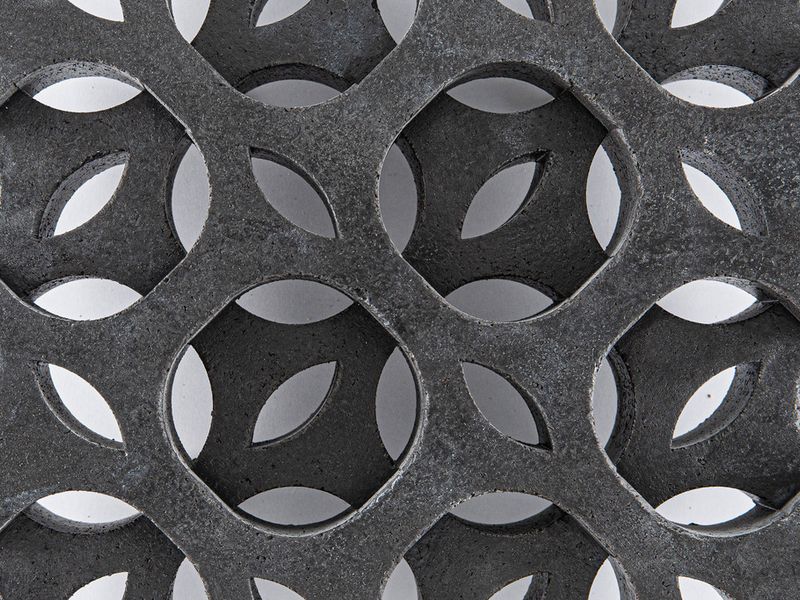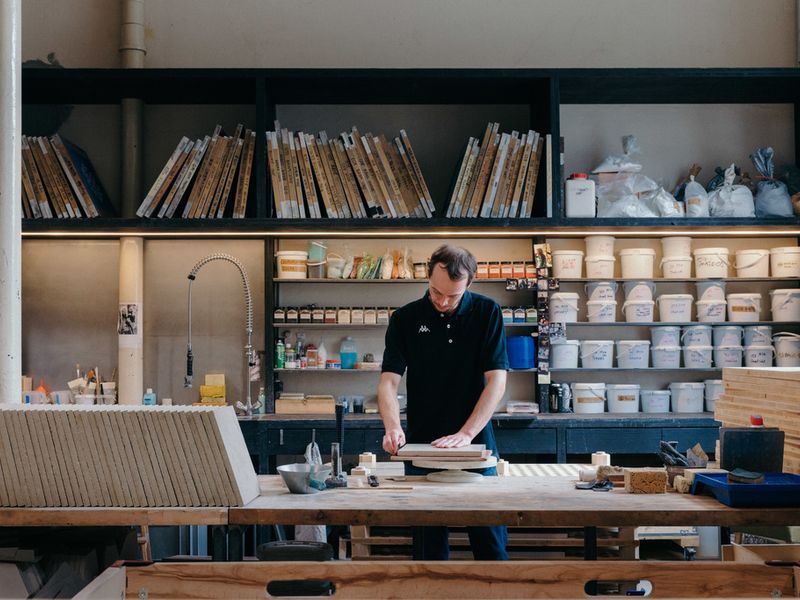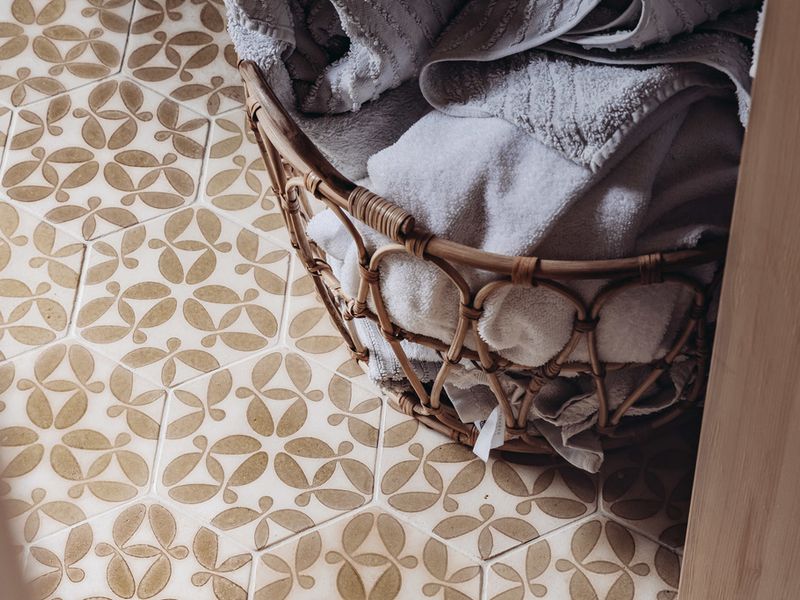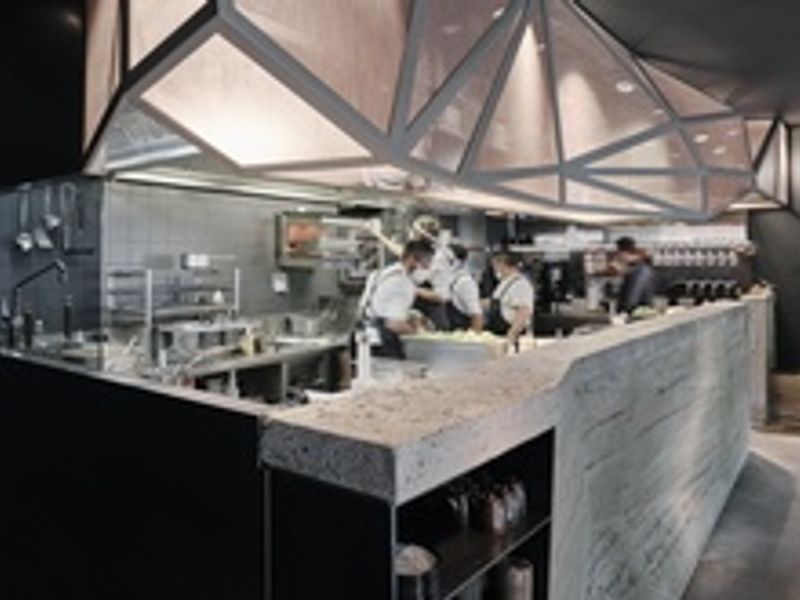We can't find the internet
Attempting to reconnect
Something went wrong!
Hang in there while we get back on track
Als privates Kunstprojekt gemeinsam mit der Keramikkünstlerin Marta Rauch-Debevec ins Leben gerufen, wird die Fliesenmanufaktur KARAK nun von Thomas Rösler und Sebastian Rauch weitergeführt. Die Schönheit des Zufalls ist Programm. Denn schon alleine die Idee, ein aussterbendes Handwerk – noch dazu in einer seiner aufwändigsten Techniken – im teuren Vorarlberg wieder zu beleben, kann fast nur aus Zufall entstehen.
Es ist die „Unvernunft“, die die Ausstrahlung der KARAK Fliesen ausmacht. Schönheit befreit vom Diktat der Effizienz: Geometrisch am Computer konstruierte Ornamente werden durch Siebdruck auf Fliesen aufgetragen und in der archaischen, 700 Jahre alten, aus Japan stammenden Raku-Technik gebrannt. Dabei wird jedes Stück bei 800 bis 900 Grad Celsius glühend aus dem Ofen genommen, in Sägespänen eingegraben und danach in kaltem Wasser abgeschreckt. Durch die stark einwirkenden elementaren Kräfte wird jede Fliese zu einem Unikat.
PRODUKTE
Jede Raku-Fliese wird circa 30 Mal in die Hand genommen, bis sie tatsächlich verlegt worden ist. Vielfach werden neue, individuelle Serien von Projekten und Personen inspiriert. So entstehen in enger Zusammenarbeit mit Auftraggeber*innen exklusive Objekte, die den Boden für sinnliche Räume legen.
Mit Unterstützung der D.E.S.I.G.N. Foundation

